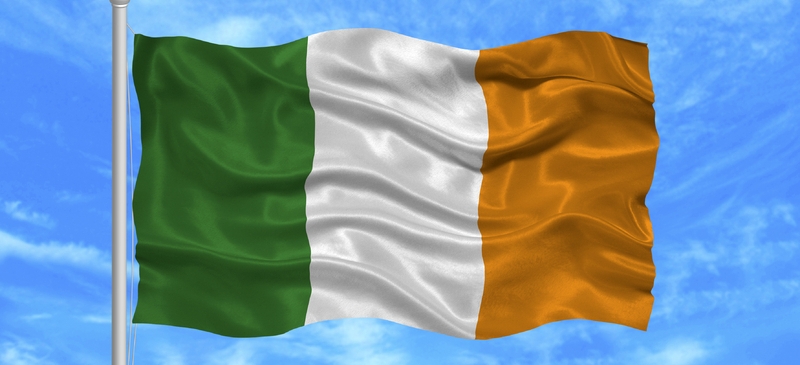
Bad omens loom over Irish referendum
Ireland's voters have a crucial decision to make on the future of the EU – in May or June this year – when they vote in the only referendum on the Treaty of Lisbon. While other countries have decided that the technocratic treaty does not warrant one, Ireland’s six previous polls on European integration have made a referendum the accepted political practice for ratifying EU treaties.
Most consider Ireland’s ratification a safe bet: the country’s businesses, media and political mainstream are almost uniformly pro- European. But facts on the ground suggest the government risks a repeat of the 2001 Nice treaty campaign, which it lost to a well- organised alliance of conservative populists.
For starters, the public may use the poll to rebuke the government on its domestic record. Apart from the newly pro-European Greens, the parties in the current coalition have been in power since 1997. Bertie Ahern – Ireland’s taoiseach for almost 11 years – is facing tough questions about his finances before an investigative tribunal. This inquiry is bringing popular disillusionment with his centrist Fianna Fáil party to a head – at a time of global economic uncertainty, rows over public sector pay and falling house prices.
Second, previous referendums have been fought between the government, the business lobby, and civil society organisations on one hand; and an alliance of anti-militarists and moral campaigners on the other. The latter will oppose the Lisbon treaty like its predecessors. But the pro-European alliance that campaigned successfully in the second referendum on the Nice treaty has been wound up. Worse, talk of EU tax harmonisation – which threatens Ireland’s low corporate tax rates – saps support from business. And a slick new pressure group, Libertas, is running a door-to-door campaign arguing that the so- called passerelle clause in the treaty will allow the EU to accrue radical new powers without referendums in future. The Libertas line is: why should the public vote away their right to vote?
Third, the Lisbon treaty contains no grand project, such as the euro or enlargement to the east, to endear it to public opinion. It is mostly a set of bureaucratic reforms, save, perhaps, the Charter of Fundamental Rights annexed to its main text. High voter turnout has been critical to winning previous campaigns. But the lack of an inspiring political argument in favour of the treaty may encourage voters to stay at home. And if politicians cannot say clearly why the treaty matters, they will have to – as with the Nice treaty – justify the benefits of EU membership in the face of public disillusionment over unpopular regulation and mass immigration. (Despite promises to the contrary during the Nice campaign, the 2004 eastern enlargement drove immigration to hitherto unknown levels in Ireland, making it the country with the fastest growing population in the EU).
Lastly, the previously pro-EU consensus in the media is being weakened by the growing influence of the British press. UK tabloids, whose anti-EU rhetoric can tap into nationalist anxieties, have an increasing share of the Irish market. The largest selling domestic daily, the Irish Independent, reproduces syndicated coverage of European issues from the Daily Telegraph, a UK broadsheet actively campaigning against the treaty. It has no full-time correspondent of its own in Brussels (nor does the Daily Telegraph). Meanwhile, the national broadcaster, RTÉ, will be obliged by law to give equal weight to both sides of the argument throughout the campaign.
Faced with a popular backlash and the chore of talking about complex reforms, politicians may simply say there are dire consequences for Ireland if the treaty is voted down. That would be a mistake: the Irish know that the Netherlands and France voted down an EU treaty in 2005, with no adverse long-term consequences for either country. Such a strategy would be likely to stoke public discontent further. Instead, the government should clarify that serious changes to Ireland’s relations with the EU, such as a new defence pact, a single European criminal system or a move to qualified majority voting for basic foreign policy decisions, would still need further referendums.
Charlie McCreevy, Ireland’s EU commissioner, will be a central figure in the debate. McCreevy has already caused some consternation by declaring that the country will be “the laughing stock” of Europe should it reject the treaty. But, as a popular former finance minister and the embodiment of national influence in Brussels, he has the authority to make a difference at pivotal moments. His voice will compare favourably with the non-Irish opponents of the treaty like French far-right politician Jean-Marie Le Pen, who have promised to travel to Ireland to join the No campaign.
The stakes are high. Technocratic though it is, the treaty is the result of a painstaking consensus within the EU to revive itself after a disastrous experiment in constitution-writing. One rejection – from the Irish or a national parliament elsewhere – would thrust it back to jaded national negotiators with no plan B. The Irish may not care. For their Yes or No will have less to do with the treaty text than with their view on whether the EU is still a positive force, at a time when their prosperity is threatened by a global economic downturn.
